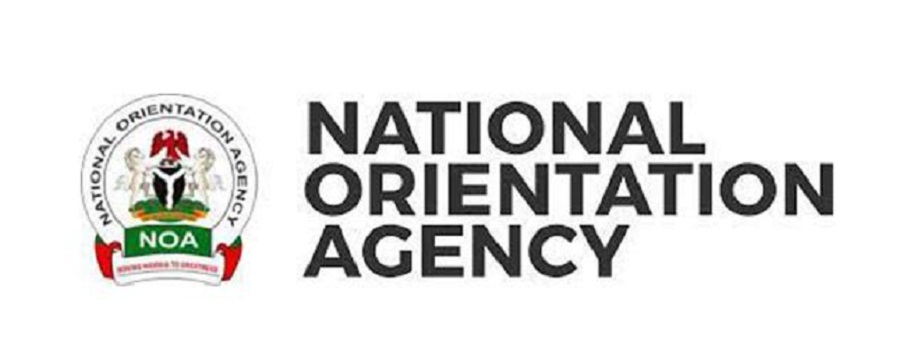News
War Looms in Nigeria over Competition for Land, Water- UN

Ibrahim Thiaw, executive secretary, UN Convention to Combat Desertification (UNCCD), has said that degradation and competition over access to land and water may cause war in Nigeria.
“Land restoration is about security, reducing clashes between farmers and herdsmen over access to land and water, which may trigger the Third World War”, Ibrahim Thiaw, told News Agency of Nigeria (NAN) in Ankara, Turkey.
“More lives have been claimed in conflicts over access to land and water than Boko Haram.
“Every day, you have more conflicts between people that are competing for access to land and water.
“The root cause of the competition is access to natural resources,” the UN official told NAN on the sidelines of 2019 World Day to Combat Desertification in the Turkish capital.
World Day to Combat Desertification is celebrated every year globally on 17 June to promote good land stewardship for the benefit of present and future generations.
The UNCCD head said that growing population with growing demand on resources, coupled with Climate Change and reduction of available land resources, were root causes of most of the bloody conflicts.
“So, the tipping point was reached long time ago; and most of the time this is also combined with bad governance at national levels,” Thiaw said.
He said that land restoration could not be left in the hands of governments alone, and called for a review of the land tenure system in order to mobilise private business investment into the programme.
“This means there should be some concession for the business sector to participate in land restoration.
“It means that if a business restores a land, it gets concession on the land for 50 years or more so that the land remains restored rather than leave it barren.
“Otherwise, why would I invest in land restoration if I had no right on that land; if the land continues to belong to someone else, I won’t invest in it.
“Restoring land will reduce forced migration and keep people on the ground to generate their own incomes and live their own lives,” he said.
The UN official said that forced migration was the worst that could happen to countries where people were departing from.
“Most times, countries of destination see it as a problem, but countries they are departing from have a bigger problem because people involved in forced migration are educated and a big loss to their national economies,” he said.
Thiaw also said that although planting of trees was important and symbolic in land restoration, it was not the only solution to the problem.
“You can plant billions of trees, but unless you have good sensitisation, the trees will not grow or they clear off again.”
News
NOA Uncovers Fraud by Banks, Universities in Students Loan Scheme

National Orientation Agency (NOA) has revealed that an investigation by its Community Orientation and Mobilisation Officers (COMO) uncovered unethical practices by some tertiary institutions, in collaboration with certain banks, that are depriving students of their rightful access to the Federal Government Student Loan Fund.

Paul Odenyi, deputy director of Communications and Media, in a statement Sunday, disclosed that several universities and financial institutions have been found engaging in fraudulent activities that prevent students from receiving the loans allocated to them.
Mallam Lanre Issa-Onilu, director general, NOA, shared these troubling findings following a high-level meeting with Mr. Akintunde Sawyerr, managing director, Nigeria Education Loan Fund (NELFUND), over the weekend.
According to NOA, preliminary reports led to an urgent intervention from NELFUND after it was discovered that some university officials had deliberately withheld critical details about student loan disbursements.
Further feedback from NOA confirmed that certain institutions, in collusion with banks, have intentionally delayed payments to approved applicants for dubious financial gain.
Additionally, some universities do not acknowledge the disbursements made by NELFUND to students.
Sawyerr confirmed that certain institutions have withheld information about loan payments issued in students’ names while still demanding tuition fees from them.
He warned that NELFUND is ready to take legal action against institutions found guilty of engaging in fraudulent practices.
He stated, “Recent findings by NELFUND have shown that some institutions have received student loan disbursements directly into their accounts yet neglect to inform the affected students or record the payments in their financial records, leading to unnecessary confusion.
“Withholding critical financial information from students is not only unethical but also a breach of the principles on which NELFUND was founded.
“We are prepared to take legal action against any institution engaged in such deceptive practices.”
The investigation revealed that in some instances, universities continued to demand full tuition payments from students, despite having already received the loan funds intended to cover those fees.
According to the NOA, this constitutes a gross violation of student rights and a betrayal of public trust.
Issa-Onilu, therefore, issued a strong warning to the institutions and collaborating financial institutions, demanding an immediate end to these actions.
He also directed all NOA state directorates to intensify feedback collection from students nationwide to aid the Federal Government in identifying and penalising the erring parties.
The NOA emphasised its commitment to transparency, accountability, and ensuring that students benefit fully from the government’s intervention in education financing.
The statement added that the investigation remains ongoing, and further actions are expected in the coming weeks.
General News
Nigeria Records $6.83Bn Balance of Payments Surplus in 2024 Amid Economic Reforms

Central Bank of Nigeria (CBN) has announced a remarkable $6.83 billion balance of payments surplus for 2024, marking a decisive turnaround from deficits of $3.34 billion in 2023 and $3.32 billion in 2022.

This achievement reflects the impact of sweeping macroeconomic reforms, stronger trade dynamics, and renewed investor confidence in the nation’s economic direction.
Speaking at the 36th Enugu International Trade Fair, Acting Director of Corporate Communications, Mrs. Hakama Sidi Ali, highlighted the CBN’s commitment to addressing economic challenges and fostering productivity, particularly for SMEs.
She emphasized the importance of robust financial systems, foreign exchange stability, and collaboration between monetary and fiscal authorities in achieving industrial development and global recognition.
The President of the Enugu Chamber of Commerce, Sir Odeiga Jideonwo, commended the CBN’s efforts but expressed concerns over the recent hike in interest rates, cautioning that it could hinder access to credit for businesses.
This surplus signals a positive trajectory for Nigeria’s economy, benefiting investors, businesses, and citizens alike.
News
Senate Committee Partners with Kuda Bank to Tackle Compliance Crisis as Nigeria Loses ₦3.4 Trillion

Over ₦3.4 trillion in financial infractions were uncovered across federal Ministries, Departments, and Agencies (MDAs) in 2021, according to the Auditor General’s report — a staggering figure that highlights Nigeria’s deepening compliance crisis and the urgent need for stronger oversight in public institutions.

In response, the Senate Committee on Legislative Compliance is hosting a high-level workshop to address the root causes of weak oversight and institutional gaps. The two-day event, with the theme ‘Consolidating Strategies for Strengthening Legislative Compliance by MDAs’, will take place on April 15 and 16, 2025 at NAF Suites, Abuja, bringing together lawmakers, regulators, and over two hundred representatives from federal MDAs.
Kuda Microfinance Bank is co-sponsoring the workshop as part of its commitment to supporting responsible innovation, governance, and regulatory alignment in Nigeria’s financial ecosystem.
Rasaq Kadri, Kuda’s Head of Compliance, will deliver a keynote address on the second day of the event, highlighting the efforts of Nigeria’s fintechs to promote inclusion and financial literacy without compromising on compliance best practices.
“When public funds go unaccounted for, it doesn’t just damage government credibility, it affects the entire financial ecosystem, including fintechs,” said Kadri. “We can’t build trust-driven products in a trust-deficient environment. Every time compliance is treated as a box-ticking exercise, we miss the chance to build something that lasts. Fintechs have the tools and perspective to support better governance, but more importantly, we have a responsibility to be part of the solution.”
As a sponsor, Kuda will take the workshop to engage directly with key stakeholders in Nigeria’s regulatory and public service ecosystem.
Plenary sessions will be chaired by the Honourable Attorney General of the Federation, Lateef Fagbemi SAN, and the Honourable Minister of Finance, Wale Edun. Conversations will focus on closing compliance gaps, strengthening institutional transparency, and promoting cross-sector collaboration.
The Senate Committee on Legislative Compliance Workshop is a unique platform for dialogue, knowledge-sharing, and collaborative action.

 E-Business2 days ago
E-Business2 days agoNITDA Warns Against Fake Google Play Store

 General News2 days ago
General News2 days agoLagos Commences Integration of NIN with State Single Social Register

 E-Financial2 days ago
E-Financial2 days agoSEC Bans Unregistered Digital Asset Exchanges, Online Forex Platforms

 News2 days ago
News2 days agoNOA Uncovers Fraud by Banks, Universities in Students Loan Scheme

 E-Financial2 days ago
E-Financial2 days agoUBA Redefines Banking with Next-Gen PoS Terminals and Revamped MONI App

 E-Financial2 days ago
E-Financial2 days agoAfrica Loses $88.6Bn Yearly to Corruption- ECOWAS

 E-Financial2 days ago
E-Financial2 days agoNIBSS Heads to Court to Recover N4Bn Lost due to System Glitch

 General News2 days ago
General News2 days agoNigeria Records $6.83Bn Balance of Payments Surplus in 2024 Amid Economic Reforms


























